502 results in Cambridge Library Collection - Classics
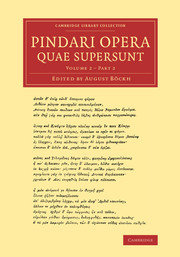
Pindari opera quae supersunt
-
- Published online:
- 05 October 2014
- Print publication:
- 31 October 2013
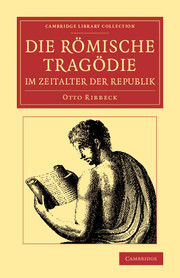
Die Römische Tragödie im Zeitalter der Republik
-
- Published online:
- 05 October 2014
- Print publication:
- 24 October 2013
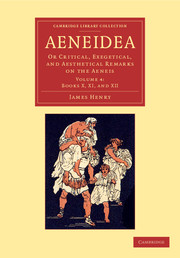
Aeneidea
- Or Critical, Exegetical, and Aesthetical Remarks on the Aeneis
-
- Published online:
- 05 March 2014
- Print publication:
- 03 October 2013
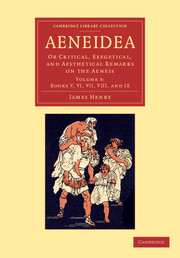
Aeneidea
- Or Critical, Exegetical, and Aesthetical Remarks on the Aeneis
-
- Published online:
- 05 March 2014
- Print publication:
- 03 October 2013
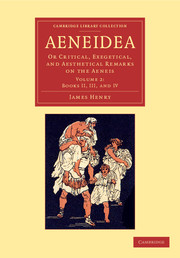
Aeneidea
- Or Critical, Exegetical, and Aesthetical Remarks on the Aeneis
-
- Published online:
- 05 March 2014
- Print publication:
- 03 October 2013
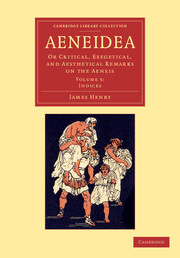
Aeneidea
- Or Critical, Exegetical, and Aesthetical Remarks on the Aeneis
-
- Published online:
- 05 March 2014
- Print publication:
- 03 October 2013
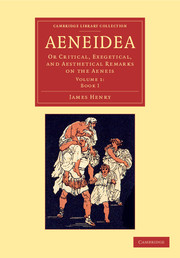
Aeneidea
- Or Critical, Exegetical, and Aesthetical Remarks on the Aeneis
-
- Published online:
- 05 March 2014
- Print publication:
- 03 October 2013
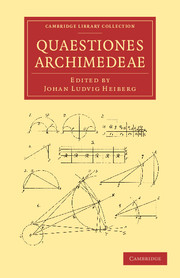
Quaestiones Archimedeae
-
- Published online:
- 05 October 2014
- Print publication:
- 27 June 2013
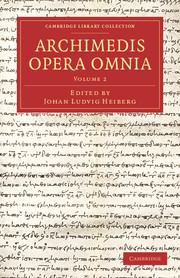
Archimedis Opera Omnia
-
- Published online:
- 05 March 2014
- Print publication:
- 18 April 2013
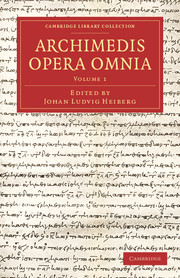
Archimedis Opera Omnia
-
- Published online:
- 05 March 2014
- Print publication:
- 18 April 2013
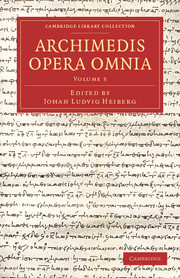
Archimedis Opera Omnia
-
- Published online:
- 05 October 2014
- Print publication:
- 18 April 2013
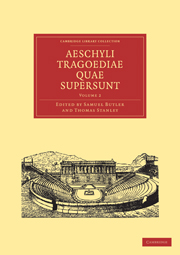
Aeschyli Tragoediae Quae Supersunt
-
- Published online:
- 05 March 2015
- Print publication:
- 17 February 2011
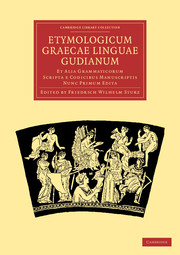
Etymologicum Graecae Linguae Gudianum
- Et Alia Grammaticorum Scripta e Codicibus Manuscriptis Nunc Primum Edita
-
- Published online:
- 05 December 2014
- Print publication:
- 17 February 2011
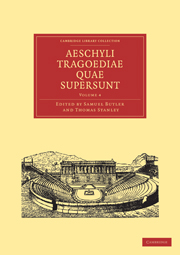
Aeschyli Tragoediae Quae Supersunt
-
- Published online:
- 05 November 2015
- Print publication:
- 17 February 2011
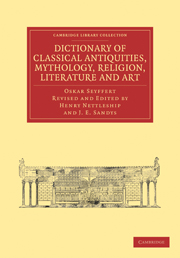
Dictionary of Classical Antiquities, Mythology, Religion, Literature and Art
-
- Published online:
- 05 April 2012
- Print publication:
- 17 February 2011
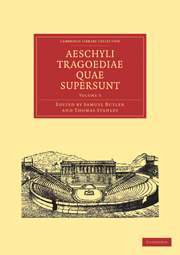
Aeschyli Tragoediae Quae Supersunt
-
- Published online:
- 05 November 2015
- Print publication:
- 17 February 2011
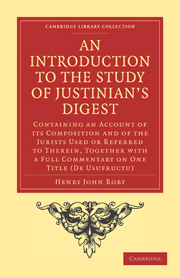
An Introduction to the Study of Justinian’s Digest
- Containing an Account of its Composition and of the Jurists Used or Referred to Therein, Together with a Full Commentary on One Title (De Usufructu)
-
- Published online:
- 05 July 2013
- Print publication:
- 02 February 2011
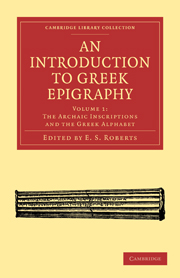
An Introduction to Greek Epigraphy
-
- Published online:
- 05 February 2015
- Print publication:
- 02 February 2011
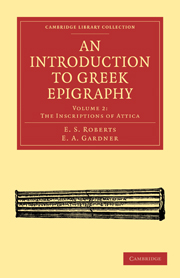
An Introduction to Greek Epigraphy
-
- Published online:
- 05 May 2013
- Print publication:
- 02 February 2011
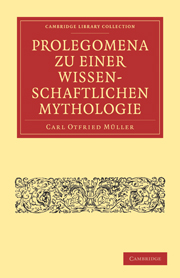
Prolegomena zu einer Wissenschaftlichen Mythologie
-
- Published online:
- 05 April 2012
- Print publication:
- 02 December 2010



